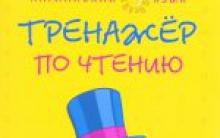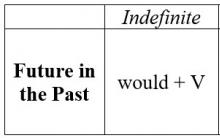I. Ruins
The main character is the boy Vasya, who lives in the town of Knyazhye-Veno. His mother died when he was six years old. After the death of his wife, the father was not very involved in raising his son.
On a hill among ponds there is an abandoned castle inhabited by beggars. Somehow a conflict occurs between them, as a result of which a group of homeless people find themselves on the street. An old servant named Janusz, who once served the count, the owner of the house, remained living in the castle. Catholics and several other servants settled with Janusz.
II. Problematic natures
Those who were expelled moved to live in a dungeon near an abandoned chapel. This group was headed by Pan Tyburtsy. Little was known about this man's past. Some considered him a sorcerer, others thought that this man was of noble blood, although in appearance he looked like a commoner. Tyburtsy has adopted children. This is the boy Valek and Marusya, his sister. Janusz invites Vasya to visit the castle, but the guy is prettier than Valek and Marusya.
III. Me and my father
Janusz reproaches Vasily for hanging out with bad company.
Vasya remembers his mother, reflects on his father and his sister Sonya, with whom he became very close after the death of their mother.
IV. I'm making a new acquaintance
Vasily goes to the chapel with friends, but they were afraid to go inside and run away. The boy goes inside alone and meets Valek and Marusya there. Brother and sister invite Vasya to visit them more often and meet secretly so that their father does not find out.
V. The acquaintance continues
Vasya regularly visits his new friends. He notices that the girl’s health is deteriorating. Tyrbutsy believes that it is Kamen who is sucking away his daughter’s health. Life in a damp dungeon cannot but affect children's poor health.
VI. Among the "gray stones"
Vasya witnesses his new comrade stealing a bun to feed Marusya. Although Vasya very much condemns Valek’s action, pity takes over. He also feels sorry for the ill Marusya. At home Vasya is crying.
VII. Pan Tyburtsy appears on stage
Vasya meets Pan Tyrbutsy. This happens by chance, but then the boy and the man become friends. Janusz complains to the judge about bad company.
VIII. in autumn
Marusya is getting worse. Vasya visits new friends.
IX. Doll
Hoping to somehow please Marusya, Vasily asks his sister Sonya for a doll. This happens without the father's knowledge. The loss is discovered. The boy does not dare to take his friend’s new toy. She, delirious, clings to her as her last hope. Vasily's father does not let him leave the house.
Everything is resolved when Tyrbutsy brings the doll home to Vasily. He tells Vasya’s father about his son’s acquaintance with other children and reports that Marusya has died. Vasya's father allows his son to leave to say goodbye to the deceased.
Conclusion
After these events, Pan Tyrbutsy and his son leave the city. Almost all homeless people disappear along with them. Sonya, her brother and her father visit Marusya’s grave. When children become adults, they leave the city. Before leaving, the brother and sister come to the girl's grave and say their vows.
Title of the work: In bad company
Korolenko Vladimir
Year of writing: 1885
Genre: story
Main characters: Vasya- son of a judge Sonya- Vasya’s sister, Outrigger- son of Tyburtsiy, Marusya- sister Valeka, Tyburtsy- the head of the “bad society”, Vasya's father- city judge.
A piercing and very adult story, which you can get acquainted with through the summary of the story “In Bad Society” for the reader’s diary.
Plot
When his mother died, Vaska was left without a caretaker. The father, stricken with grief, does not devote time to his son and is immersed in work. Near the city there is a chapel and a dungeon in which homeless people live, the so-called “bad society”. Vaska climbs into the chapel and meets Valek and Marusya there. The children are friends. One day Valek says that their father loves them very much. Vaska replies that he cannot say such things about his father, who, on the contrary, does not like him. Valek notes that his father is fair and honest. Marusya is sick. Vasya brings her the Sonechka doll. The girl is happy. The judge hears rumors about his son's association with bad society. Vaska is locked up, but he escapes. Tyburtsy comes to the judge with a doll and talks about the friendship of the children. The judge and son become closer. Marusya is dying. Children often come to her grave.Conclusion (my opinion)
Vasya made friends with the children of Tyburtsiy despite the labels attached to the inhabitants of the dungeon. He does not care about the attitude of those around him. He is a very humane and kind boy, not spoiled by prejudice and cruelty. Thanks to his generosity, he brings shame to his father’s callous heart and becomes close to him. Marusya becomes a memory for everyone and a sad example and victim of human inequality.To convey a summary of “In Bad Society,” a few trivial sentences are not enough. Despite the fact that this fruit of Korolenko’s creativity is usually considered a story, its structure and volume are more reminiscent of a story.
On the pages of the book, a dozen characters await the reader, whose fate will move along a track rich in loops over the course of several months. Over time, the story was recognized as one of the best opuses from the writer’s pen. It was also reprinted many times, and several years after the first publication it was slightly modified and published under the title “Children of the Dungeon.”
Main character and setting
The main character of the work is a boy named Vasya. He lived with his father in the city of Knyazhye-Veno in the South-Western region, populated mainly by Poles and Jews. It would not be out of place to say that the city in the story was captured by the author “from nature.” In the landscapes and descriptions one can recognize exactly the second half of the 19th century. The content of Korolenko’s “In a Bad Society” is generally rich in descriptions of the world around us.
The child's mother died when he was only six years old. The father, busy with judicial service and his own grief, paid little attention to his son. At the same time, Vasya was not prevented from getting out of the house on his own. That is why the boy often wandered around his hometown, full of secrets and mysteries.
Lock
One of these local attractions was which formerly served as the count's residence. However, the reader will find him not at the best of times. Now the walls of the castle are destroyed due to impressive age and lack of maintenance, and its interior has been chosen by the poor of the immediate surroundings. The prototype of this place was the palace that belonged to the noble Lyubomirsky family, who bore the title of princes and lived in Rivne.
Scattered, they did not know how to live in peace and harmony due to differences in religion and conflict with the former count's servant Janusz. Exercising his right to decide who had the right to remain in the castle and who did not, he showed the door to all those who did not belong to the Catholic flock or the servants of the former owners of these walls. The outcasts settled in a dungeon, which was hidden from prying eyes. After this incident, Vasya stopped visiting the castle that he had visited before, despite the fact that Janusz himself called the boy, whom he considered the son of a respected family. He didn't like how the exiles were treated. The immediate events of Korolenko's story "In a Bad Society", a summary of which cannot do without mentioning this episode, begin precisely from this point.
Meeting in the chapel

One day Vasya and his friends climbed into the chapel. However, after the children realized that there was someone else inside, Vasya’s friends cowardly ran away, leaving the boy alone. In the chapel there were two children from the dungeon. It was Valek and Marusya. They lived together with the exiles who were evicted by Janusz.
The leader of the entire community hiding underground was a man named Tyburtius. A summary of “In Bad Society” cannot do without its characteristics. This personality remained a secret to those around him; almost nothing was known about him. Despite his penniless lifestyle, there were rumors that the man had previously been an aristocrat. This guess was confirmed by the fact that the extravagant man quoted ancient Greek thinkers. Such an education did not in any way correspond to his common appearance. The contrasts gave the townspeople reason to consider Tyburtius a sorcerer.
Vasya quickly became friends with the children from the chapel and began to visit them and feed them. These visits for the time being remained a secret to others. Their friendship also withstood such a test as Valek’s confession that he steals food in order to feed his sister.
Vasya began to visit the dungeon itself while there were no adults inside. However, sooner or later such carelessness was bound to give the boy away. And during his next visit, Tyburtsy noticed the judge’s son. The children were afraid that the unpredictable owner of the dungeon would throw the boy out, but he, on the contrary, allowed the guest to visit them, taking his word that he would remain silent about the secret place. Now Vasya could visit his friends without fear. This is the summary of “In Bad Society” before the start of dramatic events.
Dungeon Dwellers

He met and became close to other exiles of the castle. These were different people: former official Lavrovsky, who loved to tell incredible stories from his past life; Turkevich, who called himself a general and loved to visit the windows of eminent residents of the city, and many others.
Despite the fact that they were all different from each other in the past, now they all lived together and helped their neighbors, sharing the modest life they had built, begging on the street and stealing, like Valek or Tyburtsy himself. Vasya fell in love with these people and did not condemn their sins, realizing that they were all brought to such a state by poverty.
Sonya
The main reason why the main character ran into the dungeon was the tense atmosphere in his own home. If his father did not pay any attention to him, then the servants considered the boy a spoiled child, who, moreover, constantly disappeared in unknown places.
The only person who makes Vasya happy at home is his younger sister Sonya. He loves the four-year-old, playful and cheerful girl very much. However, their own nanny did not allow the children to communicate with each other, because she considered the older brother a bad example for the judge’s daughter. Father himself loved Sonya much more than Vasya, because she reminded him of his deceased wife.
Marusya's disease

With the onset of autumn, Valek's sister Marusya became seriously ill. In the entire work “In Bad Society,” the content can be safely divided into “before” and “after” this event. Vasya, who could not calmly look at his friend’s serious condition, decided to ask Sonya for the doll that her mother left behind. She agreed to borrow a toy, and Marusya, who had nothing of the kind due to poverty, was very happy about the gift and even began to recover in her dungeon “in bad company.” The main characters did not yet realize that the outcome of the whole story was closer than ever.
Secret Revealed

It seemed that everything would work out, but suddenly Janusz came to the judge to denounce the inhabitants of the dungeon, as well as Vasya, who was noticed in unfavorable company. The father was angry with his son and forbade him to leave the house. At the same time, the nanny discovered the doll was missing, which caused another scandal. The judge tried to get Vasya to confess where he goes and where his sister’s toy is now. The boy only replied that he had indeed taken the doll, but did not say what he did with it. Even the summary of “In Bad Society” shows how strong in spirit Vasya was, despite his young age.
Denouement

Several days passed. Tyburtsy came to the boy’s house and gave Sonya’s toy to the judge. In addition, he talked about the friendship of such different children. The father, struck by the story, felt guilty before his son, to whom he did not devote time and who, because of this, began to communicate with beggars who were not loved by anyone in the city. Finally, Tyburtsy said that Marusya had died. The judge allowed Vasya to say goodbye to the girl, and he himself gave money to her father, after giving advice to escape from the city. This is where the story "In Bad Society" ends.
The unexpected visit of Tyburtsy and the news of Marusya’s death destroyed the wall between the main character of the story and his father. After the incident, the two of them began to visit the grave near the chapel, where the three children met for the first time. In the story “In Bad Society,” the main characters were never able to appear all together in one scene. The beggars from the dungeon were never seen in the city again. They all suddenly disappeared, as if they had never existed.
V.G.KOROLENKO
IN BAD SOCIETY
From my friend's childhood memories
Preparation of text and notes: S.L. KOROLENKO and N.V. KOROLENKO-LYAKHOVICH
I. RUINS
My mother died when I was six years old. My father, completely absorbed in his grief, seemed to completely forget about my existence. Sometimes he caressed my little sister and took care of her in his own way, because she had her mother’s features. I grew up like a wild tree in a field - no one surrounded me with special care, but no one constrained my freedom.
The place where we lived was called Knyazhye-Veno, or, more simply, Knyazh-gorodok. It belonged to one seedy but proud Polish family and represented all the typical features of any of the small towns of the South-Western region, where, among the quietly flowing life of hard work and petty fussy Jewish gesheft, the pitiful remains of the proud lordly greatness live out their sad days.
If you approach the town from the east, the first thing that catches your eye is the prison, the best architectural decoration of the city. The city itself lies below sleepy, moldy ponds, and you have to go down to it along a sloping highway, blocked by a traditional “outpost”. A sleepy disabled person, a figure browned in the sun, the personification of a serene slumber, lazily raises the barrier, and - you are in the city, although, perhaps, you do not notice it right away. Gray fences, vacant lots with heaps of all sorts of rubbish are gradually interspersed with dim-sighted huts sunk into the ground. Further on, the wide square gapes in different places with the dark gates of Jewish “visiting houses”; government institutions are depressing with their white walls and barracks-like lines. A wooden bridge spanning a narrow river groans, trembles under the wheels, and staggers like a decrepit old man. Beyond the bridge stretched a Jewish street with shops, benches, little shops, tables of Jewish money changers sitting under umbrellas on the sidewalks, and with awnings of kalachniki. The stench, the dirt, the heaps of kids crawling in the street dust. But another minute and you are already outside the city. The birch trees whisper quietly over the graves of the cemetery, and the wind stirs the grain in the fields and rings with a sad, endless song in the wires of the roadside telegraph.
The river over which the aforementioned bridge was thrown flowed from a pond and flowed into another. Thus, the town was fenced from the north and south by wide expanses of water and swamps. The ponds became shallower year by year, overgrown with greenery, and tall, dense reeds waved like the sea in the huge swamps. There is an island in the middle of one of the ponds. There is an old, dilapidated castle on the island.
I remember with what fear I always looked at this majestic decrepit building. There were legends and stories about him, one more terrible than the other. They said that the island was built artificially, by the hands of captured Turks. “On human bones stands an old castle,” the old-timers said, and my frightened childhood imagination pictured thousands of Turkish skeletons underground, supporting with their bony hands the island with its tall pyramidal poplars and the old castle. This, of course, made the castle seem even more terrible, and even on clear days, when, sometimes, encouraged by the light and loud voices of birds, we came closer to it, it often brought on us fits of panic horror - the black hollows of the long-dug out windows; in the empty halls there was a mysterious rustling sound: pebbles and plaster, breaking away, fell down, awakening a echo, and we ran without looking back, and behind us for a long time there was knocking, stomping, and cackling.
And on stormy autumn nights, when the giant poplar trees swayed and hummed from the wind blowing from behind the ponds, horror spread from the old castle and reigned over the entire city. "Oh-vey-peace!" [Oh woe is me (Heb.)] - the Jews said fearfully; God-fearing old bourgeois women were baptized, and even our closest neighbor, the blacksmith, who denied the very existence of demonic power, went out into his courtyard at these hours, made the sign of the cross and whispered to himself a prayer for the repose of the departed.
Old, gray-bearded Janusz, who, for lack of an apartment, took refuge in one of the basements of the castle, told us more than once that on such nights he clearly heard screams coming from underground. The Turks began to tinker under the island, rattling their bones and loudly reproaching the lords for their cruelty. Then, in the halls of the old castle and around it on the island, weapons rattled, and the lords called the haiduks with loud shouts. Janusz heard quite clearly, under the roar and howl of the storm, the tramp of horses, the clanking of sabers, the words of command. Once he even heard how the late great-grandfather of the current counts, glorified forever for his bloody exploits, rode out, clattering the hooves of his argamak, to the middle of the island and furiously swore:
“Keep quiet there, laidaks [Idlers (Polish)], psya vyara!”
The descendants of this count left the home of their ancestors long ago. Most of the ducats and all sorts of treasures, from which the chests of the counts were previously bursting, went over the bridge, into the Jewish hovels, and the last representatives of the glorious family built themselves a prosaic white building on the mountain, away from the city. There their boring, but still solemn existence passed in contemptuously majestic solitude.
Occasionally only the old count, the same gloomy ruin as the castle on the island, appeared in the city on his old English nag. Next to him, in a black riding habit, stately and dry, his daughter rode through the city streets, and the horsemaster respectfully followed behind. The majestic countess was destined to remain a virgin forever. Suitors equal to her in origin, in pursuit of the money of merchant daughters abroad, cowardly scattered around the world, leaving their family castles or selling them for scrap to the Jews, and in the town spread out at the foot of her palace, there was no young man who would dare to look up at beautiful countess. Seeing these three horsemen, we little guys, like a flock of birds, took off from the soft street dust and, quickly scattering around the courtyards, watched with frightened and curious eyes the gloomy owners of the terrible castle.
On the western side, on the mountain, among decaying crosses and sunken graves, stood a long-abandoned Uniate chapel. This was the native daughter of the philistine city itself, which was spread out in the valley. Once upon a time, at the sound of a bell, townspeople in clean, although not luxurious, kuntushas gathered in it, with sticks in their hands instead of sabers, which rattled the small gentry, who also came to the call of the ringing Uniate bell from the surrounding villages and farmsteads.
Vladimir Korolenko
IN BAD SOCIETY
From my friend's childhood memories I
I. Ruins
My mother died when I was six years old. My father, completely absorbed in his grief, seemed to completely forget about my existence. Sometimes he caressed my little sister and took care of her in his own way, because she had her mother’s features. I grew up like a wild tree in a field - no one surrounded me with special care, but no one constrained my freedom.
The place where we lived was called Knyazhye-Veno, or, more simply, Knyazh-gorodok. It belonged to one seedy but proud Polish family and represented all the typical features of any of the small towns of the South-Western region, where, among the quietly flowing life of hard work and petty fussy Jewish gesheft, the pitiful remains of the proud lordly greatness live out their sad days.
If you approach the town from the east, the first thing that catches your eye is the prison, the best architectural decoration of the city. The city itself lies below sleepy, moldy ponds, and you have to go down to it along a sloping highway, blocked by a traditional “outpost”. A sleepy disabled person, a figure browned in the sun, the personification of a serene slumber, lazily raises the barrier, and - you are in the city, although, perhaps, you do not notice it right away. Gray fences, vacant lots with heaps of all sorts of rubbish are gradually interspersed with dim-sighted huts sunk into the ground. Further, the wide square gapes in different places with the dark gates of Jewish “visiting houses”; government institutions are depressing with their white walls and barracks-like lines. A wooden bridge spanning a narrow river groans, trembles under the wheels, and staggers like a decrepit old man. Beyond the bridge stretched a Jewish street with shops, benches, little shops, tables of Jewish money changers sitting under umbrellas on the sidewalks, and with awnings of kalachniki. The stench, the dirt, the heaps of kids crawling in the street dust. But another minute and you are already outside the city. The birch trees whisper quietly over the graves of the cemetery, and the wind stirs the grain in the fields and rings with a sad, endless song in the wires of the roadside telegraph.
The river over which the aforementioned bridge was thrown flowed from a pond and flowed into another. Thus, the town was fenced from the north and south by wide expanses of water and swamps. The ponds became shallower year by year, overgrown with greenery, and tall, dense reeds waved like the sea in the huge swamps. There is an island in the middle of one of the ponds. There is an old, dilapidated castle on the island.
I remember with what fear I always looked at this majestic decrepit building. There were legends and stories about him, one more terrible than the other. They said that the island was built artificially, by the hands of captured Turks. “The old castle stands on human bones,” the old-timers said, and my frightened childhood imagination pictured thousands of Turkish skeletons underground, supporting with their bony hands the island with its tall pyramidal poplars and the old castle. This, of course, made the castle seem even more terrible, and even on clear days, when, sometimes, encouraged by the light and loud voices of birds, we came closer to it, it often brought on us fits of panic horror - the black hollows of the long-dug out buildings looked so scary windows; in the empty halls there was a mysterious rustling sound: pebbles and plaster, breaking away, fell down, awakening a echo, and we ran without looking back, and behind us for a long time there was knocking, stomping, and cackling.
And on stormy autumn nights, when the giant poplars swayed and hummed from the wind blowing from behind the ponds, horror spread from the old castle and reigned over the entire city. “Oh-vey-peace!” - the Jews said timidly; God-fearing old bourgeois women were baptized, and even our closest neighbor, the blacksmith, who denied the very existence of demonic power, went out into his courtyard at these hours, made the sign of the cross and whispered to himself a prayer for the repose of the departed.
Old, gray-bearded Janusz, who, for lack of an apartment, took refuge in one of the basements of the castle, told us more than once that on such nights he clearly heard screams coming from underground. The Turks began to tinker under the island, rattling their bones and loudly reproaching the lords for their cruelty. Then weapons rattled in the halls of the old castle and around it on the island, and the lords called the haiduks with loud shouts. Janusz heard quite clearly, under the roar and howl of the storm, the tramp of horses, the clanking of sabers, the words of command. Once he even heard how the late great-grandfather of the current counts, glorified forever for his bloody exploits, rode out, clattering the hooves of his argamak, to the middle of the island and furiously swore: “Keep quiet there, laidaks, psya vyara!”
The descendants of this count left the home of their ancestors long ago. Most of the ducats and all sorts of treasures, from which the chests of the counts were previously bursting, went over the bridge, into the Jewish hovels, and the last representatives of the glorious family built themselves a prosaic white building on the mountain, away from the city. There their boring, but still solemn existence passed in contemptuously majestic solitude.
Occasionally only the old count, the same gloomy ruin as the castle on the island, appeared in the city on his old English nag. Next to him, in a black riding habit, stately and dry, his daughter rode through the city streets, and the horsemaster respectfully followed behind. The majestic countess was destined to remain a virgin forever. Suitors equal to her in origin, in pursuit of the money of merchant daughters abroad, cowardly scattered around the world, leaving their family castles or selling them for scrap to the Jews, and in the town spread out at the foot of her palace, there was no young man who would dare to look up at beautiful countess. Seeing these three horsemen, we little guys, like a flock of birds, took off from the soft street dust and, quickly scattering around the courtyards, watched with frightened and curious eyes the gloomy owners of the terrible castle.
On the western side, on the mountain, among decaying crosses and sunken graves, stood a long-abandoned Uniate chapel. This was the native daughter of the philistine city itself, which was spread out in the valley. Once upon a time, at the sound of a bell, townspeople in clean, although not luxurious, kuntushas gathered in it, with sticks in their hands instead of sabers, which rattled the small gentry, who also came to the call of the ringing Uniate bell from the surrounding villages and farmsteads.
From here the island and its dark, huge poplars were visible, but the castle was angrily and contemptuously closed off from the chapel by thick greenery, and only in those moments when the southwest wind burst out from behind the reeds and flew onto the island, did the poplars sway loudly, and because The windows glimmered through them, and the castle seemed to cast gloomy glances at the chapel. Now both he and she were corpses. His eyes were dull, and the reflections of the evening sun did not sparkle in them; its roof had collapsed in some places, the walls were crumbling, and, instead of a loud, high-pitched copper bell, the owls started playing their ominous songs in it at night.











Shein, Alexey Semyonovich: biography
The danger of tremors: why your hands shake when you're nervous What to do to prevent your hands from shaking
“The Prisoner” A. Pushkin. Poems “The Prisoner” by A. S. Pushkin and M. Yu. Lermontov I live behind bars in a damp dungeon
Act of Military Surrender We, the undersigned, acting on behalf of the German Supreme
Hallway in the apartment The reality and meaning of dreams